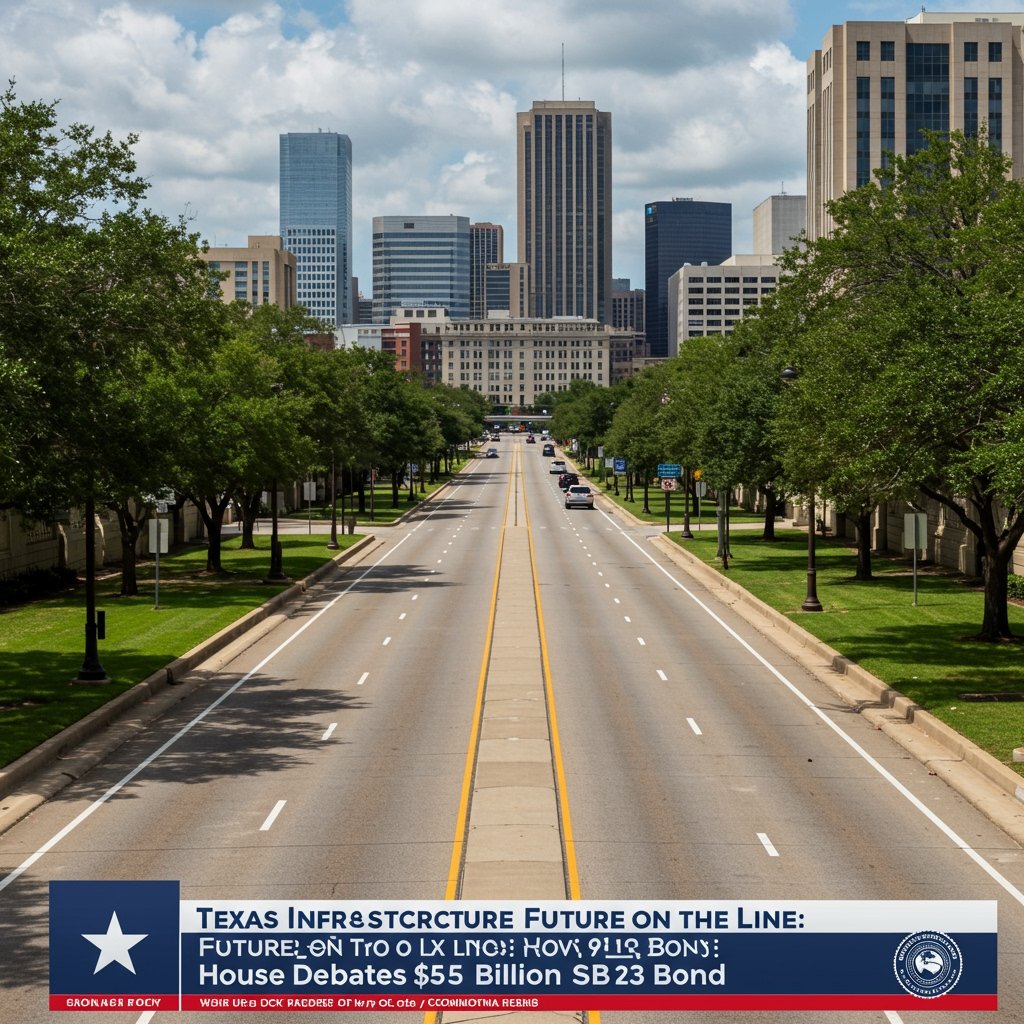Texas House Engages in Vigorous Debate Over $5 Billion Infrastructure Bond (SB 123)
A pivotal legislative proposal, Senate Bill 123, authorizing a substantial $5 billion state general obligation bond package dedicated to critical infrastructure projects across Texas, is currently the subject of intense debate within the Texas House of Representatives. This significant measure, previously approved by the Texas Senate earlier this month with relative ease, now faces considerable scrutiny and opposition as it navigates the lower chamber.
Championed by Senate Finance Committee Chair John Anderson, SB 123 is designed to address the escalating infrastructure needs of a state experiencing rapid population growth and economic expansion. The bill specifically earmarks funding for essential areas, including extensive highway rehabilitation, crucial bridge upgrades, and vital water infrastructure improvements. Proponents argue that these investments are not only necessary to support current growth but are also fundamental to ensuring Texas’s long-term prosperity, safety, and quality of life.
The Rationale Behind the Bond Proposal
Texas’s burgeoning population, which has swelled by millions in recent decades, has placed unprecedented strain on existing infrastructure systems. Roads are increasingly congested, bridges require urgent maintenance, and water systems need upgrades to meet demand and improve resilience against extreme weather events. The $5 billion bond proposed by SB 123 is presented as a proactive approach to tackling these challenges head-on, providing a significant, dedicated funding stream that bypasses potential delays and uncertainties associated with other revenue sources.
Supporters of the bill, including Senator Anderson and various industry groups, emphasize that borrowing through general obligation bonds is a fiscally responsible method for funding large-scale, long-life infrastructure projects. They argue that the low interest rates currently available make this an opportune time to borrow for projects that will yield benefits for generations. Furthermore, investing in infrastructure is seen as a potent economic stimulus, creating jobs and facilitating commerce across the state.
Challenges and Opposition in the House
While SB 123 enjoyed a smooth passage through the Senate, its journey through the House has encountered considerable hurdles. The primary source of opposition stems from fiscal conservatives within the chamber who voice significant concerns regarding the potential increase in the state’s overall debt burden. These lawmakers are wary of taking on an additional $5 billion in general obligation debt, arguing that it could constrain future state budgets and place an undue financial burden on taxpayers over the life of the bonds.
Beyond the fundamental debate over debt levels, significant discussions and disagreements center on the allocation of the proposed funds. Lawmakers are grappling with how the $5 billion would be distributed geographically across the state, ensuring that both large urban centers and rural areas receive necessary attention. There are also debates over the specific types of projects that would be prioritized, with various factions advocating for greater emphasis on highways, water, or potentially other infrastructure needs not explicitly detailed in the original bill.
Questions have been raised regarding the transparency and oversight mechanisms that would govern the selection and execution of projects funded by the bond. Critics argue for more stringent criteria and clearer processes to prevent potential waste or politically motivated project selections.
The Committee Process and Lobbying Efforts
The bill is currently undergoing rigorous review within relevant House committees. Committee members are actively working to finalize potential amendments aimed at addressing some of the concerns raised during debates. These amendments could include modifications to the project eligibility criteria, changes to the allocation formula, or the inclusion of specific oversight provisions.
This stage of the legislative process is marked by intense lobbying efforts. Industry groups, such as construction firms, engineering associations, and materials suppliers, are actively engaging with lawmakers, highlighting the economic benefits of infrastructure investment and advocating for the swift passage of the bill. Local governments, including city and county officials, are also heavily involved, lobbying for the inclusion of specific local projects or advocating for allocation methods that would benefit their jurisdictions. Water districts and agricultural groups are emphasizing the critical need for water infrastructure improvements, especially in light of past droughts and future population growth.
Lawmakers are balancing these diverse interests with the concerns about fiscal responsibility and equitable distribution of funds.
Looking Ahead: The Expected Vote
A vote on SB 123 on the House floor is expected to take place sometime next week. The outcome remains uncertain, contingent on the final form of the bill emerging from committees and the ability of legislative leaders to garner sufficient support. The debates and proposed amendments indicate a less straightforward path than the bill experienced in the Senate.
The passage of SB 123 would represent a significant commitment to addressing Texas’s infrastructure deficit through borrowing. Its failure would necessitate lawmakers exploring alternative funding mechanisms, which could potentially involve slower project timelines or reliance on less substantial annual appropriations. The decision before the House is not merely about approving a bond package; it is a critical determination about the future trajectory of infrastructure development and the state’s capacity to manage its rapid growth for years to come.






